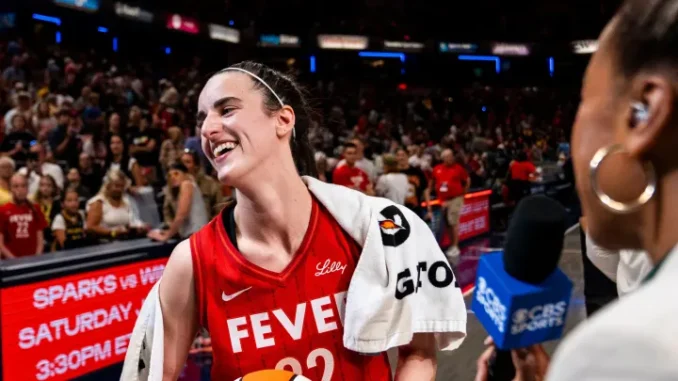
The WNBA recently faced a fresh wave of criticism following the revelation of prize money for the league’s three-
point shooting contest, sparked by the disparity between the men’s and women’s competition. The backlash centered
around the stark difference in rewards offered to participants, highlighting ongoing issues of equity and recognition
in women’s sports.Caitlin Clark, a rising star in women’s basketball known for her exceptional skills, was directly
involved in the controversy. The WNBA’s three-point contest prize money was disclosed to be significantly lower
than that of the NBA’s counterpart event. This revelation sparked widespread outrage across social media platforms
and among sports commentators, who pointed out the stark contrast between the financial incentives provided to
male and female athletes.
Critics argued that such discrepancies not only undervalued the talent and efforts of female athletes but also
perpetuated gender inequality in sports. They called for more equitable treatment in terms of prize money,
sponsorships, and media coverage, emphasizing the need for systemic changes to address longstanding disparities in
women’s sports.
In response to the backlash, advocates for gender equity in sports highlighted the broader implications of such disparities. They argued that fair compensation and recognition were crucial not only for the athletes themselves but also for inspiring future generations of young girls and women to pursue careers in sports without facing systemic barriers.
The WNBA has been at the forefront of advocating for women’s sports and has made strides in promoting gender equity. However, incidents like these underscored the ongoing challenges that female athletes continue to face in achieving equal footing with their male counterparts.
Caitlin Clark’s involvement in the controversy brought further attention to the issue, as her talent and potential represent the future of women’s basketball. Many supporters rallied behind her and other athletes, calling for concrete actions to address the disparities and ensure that women’s sports receive the respect and support they deserve.
As discussions continue, the WNBA and its stakeholders face growing pressure to take meaningful steps towards achieving gender equity in sports, including revisiting prize structures and enhancing opportunities for female athletes to thrive and succeed on equal terms.
Leave a Reply